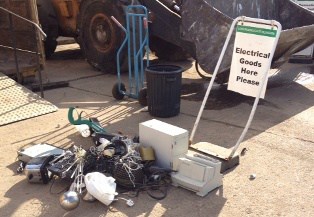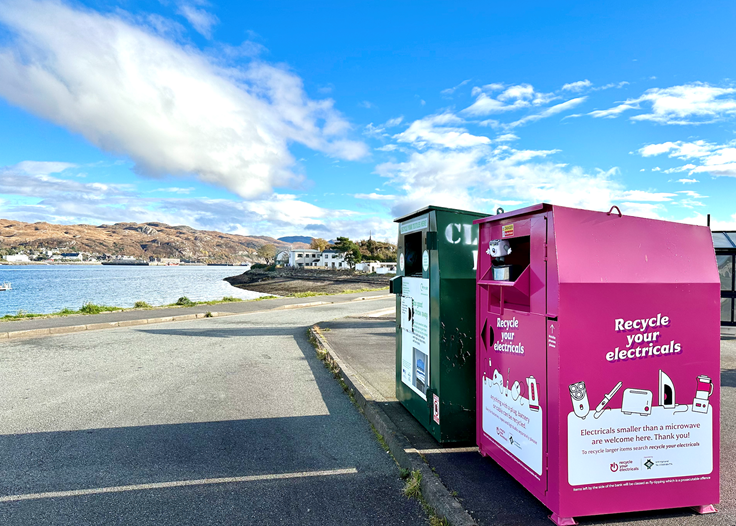The amount of small WEEE collected in the UK leapt up by almost five percentage points in 2011, according to the Environment Agency. And, the UK is now meeting double the WEEE recycling target set by the European Union.
The data shows that throughout 2011, 31,331 tonnes of small household waste electrical and electronic equipment (WEEE) were collected, equivalent to 21.7% of the total amount of new electrical electronic and equipment (EEE) placed onto the market. This represents a significant rise when compared to the small WEEE collection figure for 2010, which stood at 23,915 tonnes compared to 16.9% of EEE placed on the market in 2010.
The relationship with the EEE figures is important because going forward this is how the WEEE figures will be calculated, comparing the WEEE figures to the new EEE being put on the market.
This means that the amount of small WEEE collected was rising even before WEEE compliance schemes and reprocessors invested in initiatives to boost small WEEE recycling rates at the end of 2011, including television adverting over the Christmas period (see letsrecycle.com story).
Collection
The calendar year 2011 also saw WEEE collections pass the 500,000 tonne milestone for the first time, with a total of 505,367 tonnes of all categories of WEEE (household and business) collected over the course of the year. This is equivalent to 34.3% of EEE placed on the market and compares to the 31.5% (477,116 tonnes) collected in 2010.
This means the UK is comfortably meeting the current European Union target to recycle 4kg of WEEE per person, with 8.3kg per head being collected during the year, based on a population of roughly 62 million. However, it is still some way short of the target to recycle 45% of WEEE generated, set to be introduced by the EU in 2016 (see letsrecycle.com story).
Meanwhile, the total amount of EEE placed onto the market continued to fall, dropping 7.56% lower than 2010s total of 1,200,486.738 tonnes to 1,109,669.530 tonnes in 2011. Lightweighting of products and the recession are seen as potential reasons for the fall.
Welcome
A spokesman for the Department for Business, Innovation and Skills (BIS), the government department responsible for the UKs WEEE sector, said: “We welcome the latest WEEE data published by the Environment Agency. The UK is collecting record levels of waste electricals, and these figures show for the first time that the UK has achieved a separate collection rate of household WEEE in excess of 8kg per head of population – twice the current member state target.
“However, there is still work to be done. We have some way to go to achieve the more stringent target in the revised WEEE Directive of 45% of electrical equipment placed on the market by 2016, which we are working closely with industry partners to meet.”
Non-household WEEE
Despite the improved performance overall, collection rates for non-household or business-to-business (B2B) WEEE continue to be problematic. The tonnage collected in 2011 went up but more non-household WEEE was placed on the market than in the previous year which meant that there was no improvement in the collection rate.
In 2011 the tonnage of B2B WEEE collected was 18,115.183 tonnes compared to 15,896.133 tonnes in 2010.
Concerns were raised by compliance schemes and operators of approved authorised treatment facilities to Environment Agency officials at a meeting of the Agencies and Industry WEEE Operational Liaison Group (AIWOLG) in November 2011 that some non-household WEEE was often wrongly being classed as household WEEE.











Subscribe for free